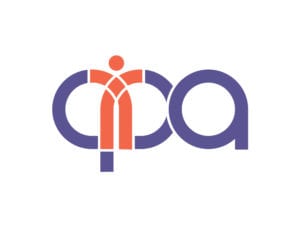Islamic Studies Curriculum
Lower and Middle School:
APA follows the Safar curriculum for Lower through 7 th grade . Safar offers a well-designed curriculum that assists in the development of the student both morally and spiritually, allowing them to take pride in their religion and to be moderate individuals. Safar follows a spiral method that revisits the material each year going into more depth and solidifying the material in the mind and heart of the student. All material in the Safar curriculum stems from the foundations of Islam: the Qur’an and the Sunnah of the Prophet (saws). Students also memorize the words of the Qur’an with proper pronunciation (tajweed) and learn the deep meanings of the words and overarching themes and stories throughout.
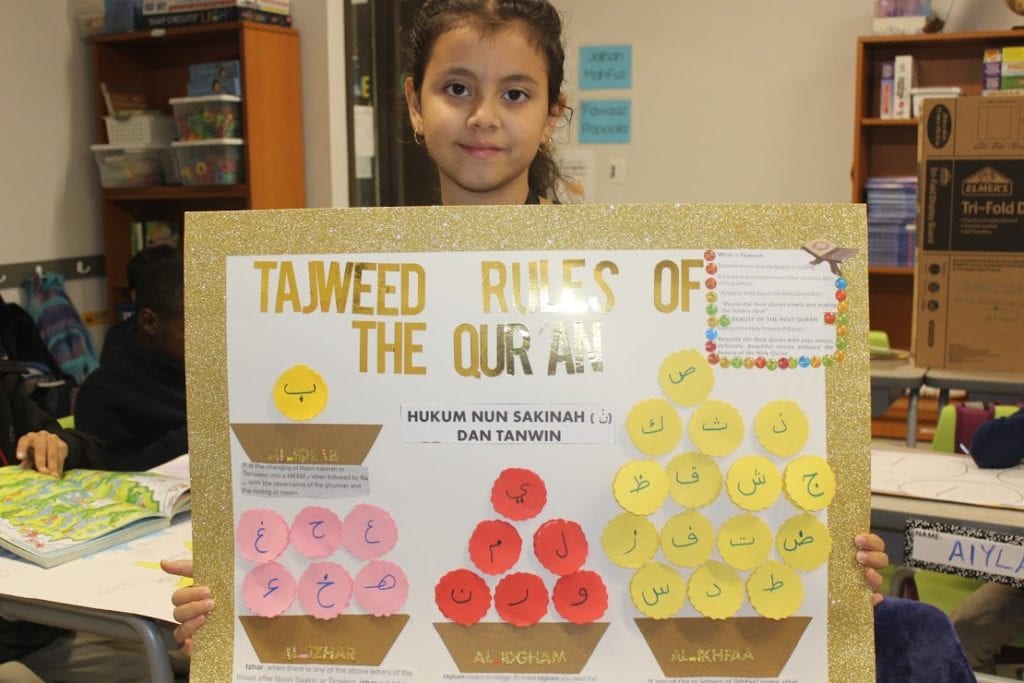
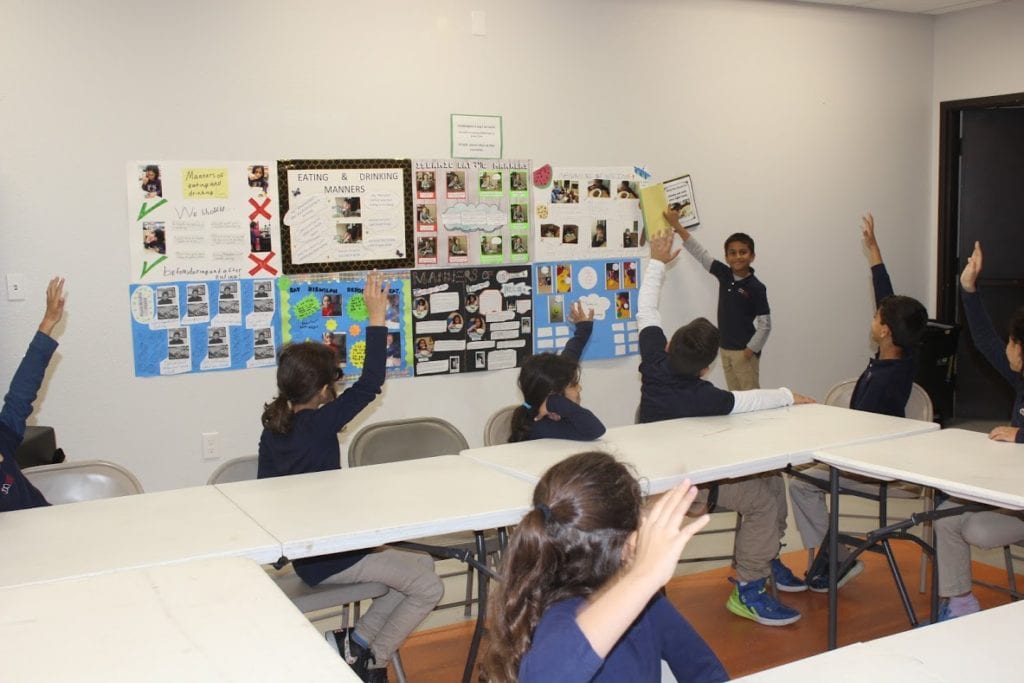
In 8 th Grade, students cover the Seerah, the life of the Prophet Muhammad (saws). They move from birth to life in Mecca among the Quraish through revelation into the success of Islam in Madinah and eventually, Mecca, to the death of the Prophet (saws). Students connect to the Prophet (saws) on a human level, developing a deep love and veneration for the Last Prophet.
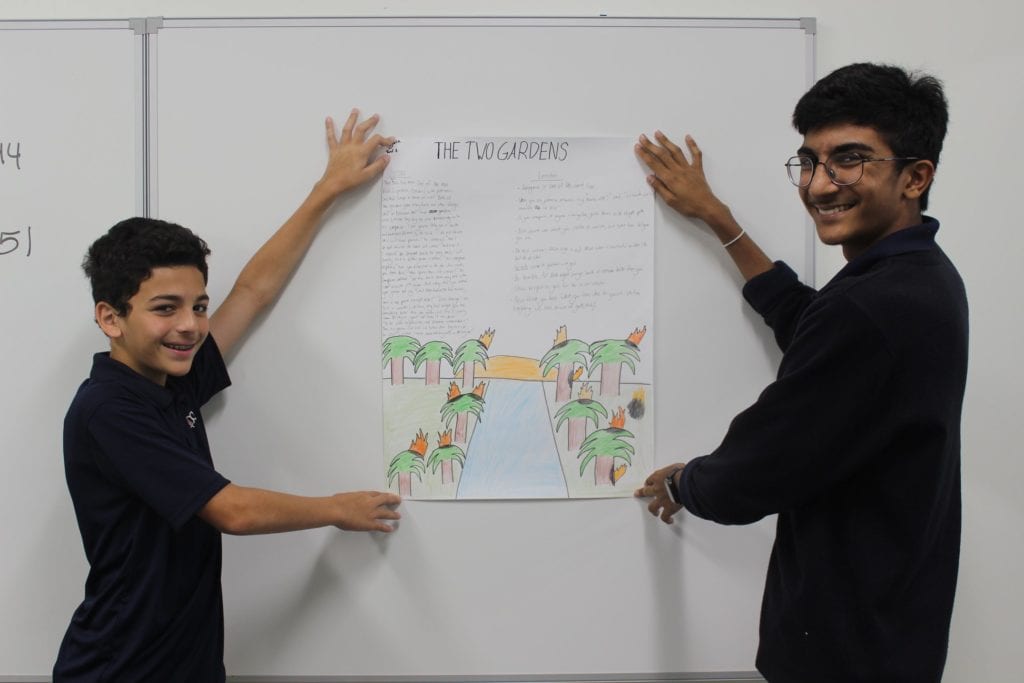

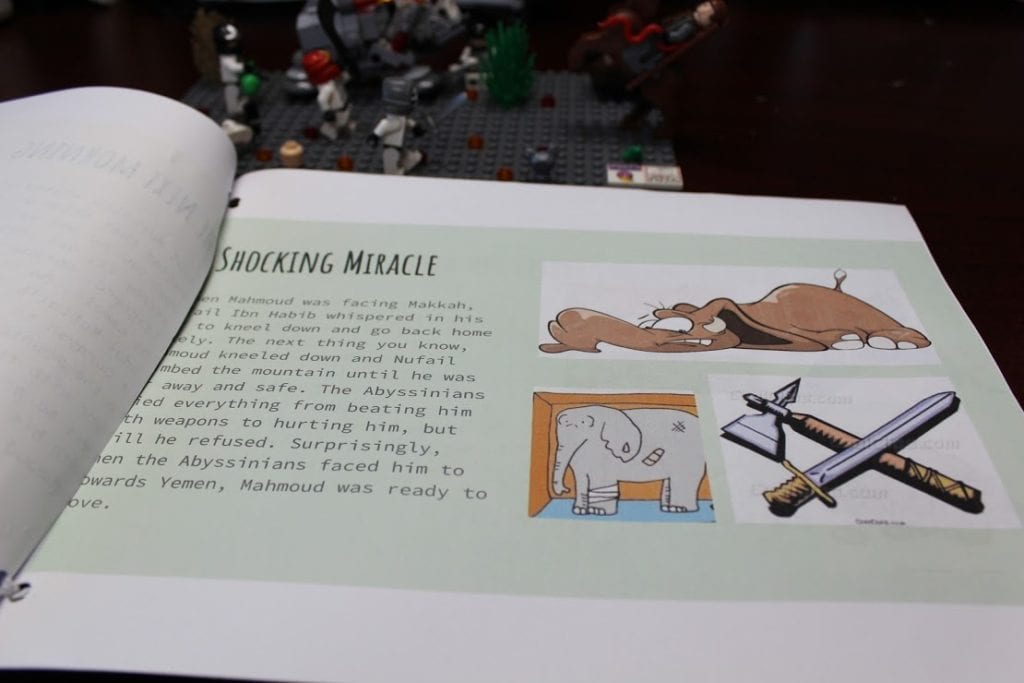
Upper School Islamic Studies :
At the Uppers School level, APA will be implementing a freshly written and prepared curriculum specific to our students. This new and improved curriculum allows for a more in-depth understanding and knowledge of major areas of the deen. It entails the division of each year into four quarters, with each quarter focusing on one of the following areas: Qur’an and Tafseer (exegesis), Ahadith, Seerah, and Fiqh.
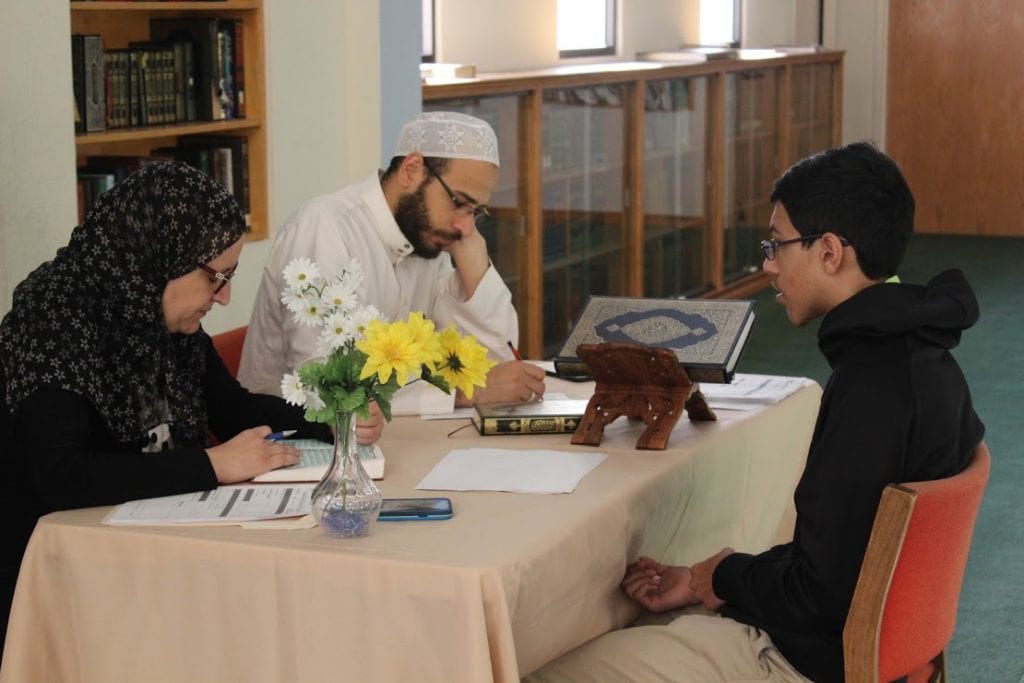
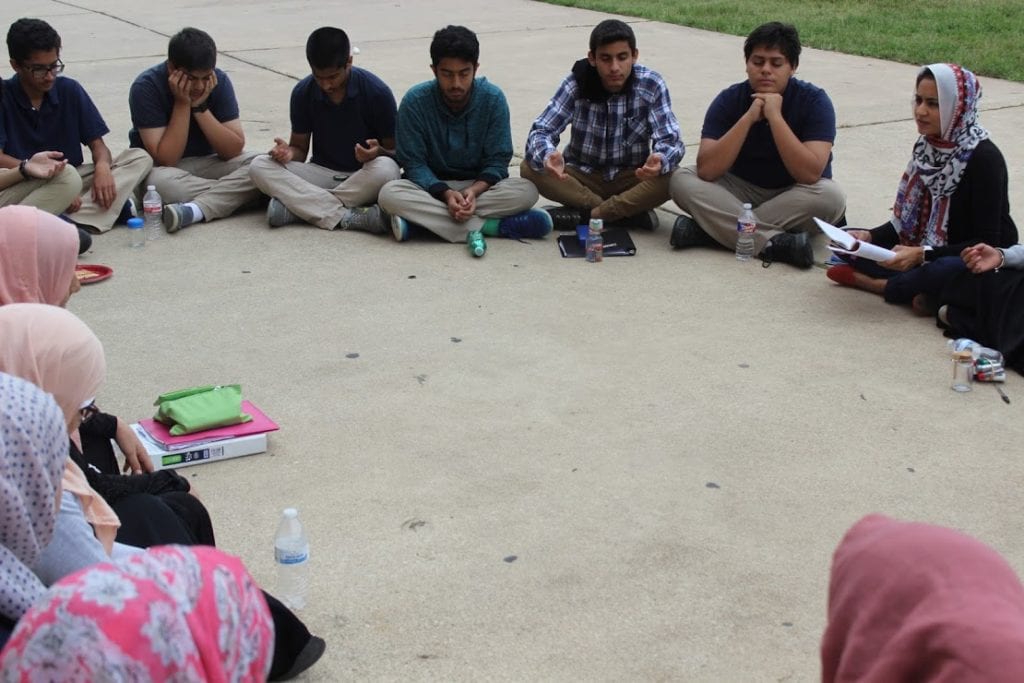
Six pillars of Iman
- Analysis of the fundamental branches of Tawheed (monotheism).
- The correct understanding of the Divine Names and Attributes of Allah, citing proof from the Quran and authentic Sunnah.
- A comprehensive study of the Messengers and the Message.
- The belief in Divine Destiny and how to understand it correctly.
- Belief in Allah’s Angels: their nature and their functions.
- Belief in Allah’s Books: What are the known revelations (scriptures) before the Qur’an.
- A comprehensive journey into the world of life after death with a complete study of the minor and major resurrection as well as the ultimate destinations of Paradise and Hellfire.
Contemporary Aqeedah:
- What Eemaan invalidates: converting from disbelief to belief and vice versa and Judgment with regard to sinners.
- Analysis of the different groups and their fundamental differences that exist under the umbrella of Islam. An analytical and historical approach is taken discussing various groups such as the Kharajites, the Shi’a, the Baatiniyah, the Sufis, etc.
- Definition of the Qur’an and its Sciences.
- Revelation (Wah’y) and its different methods.
- Miracles of the prophet.
- Refuting claims about Qur’an revelation
- Makkee and Madanee Qur’an.
- Causes of Revelation.
- Compilation of the Qur’an.
- Different Recitations’ styles (Qira’aat)
- Clear and Unclear verses.
- Abrogation in the Qur’an
- Miraculous nature of the Qur’an
- Interpretation of the Quran (Tafseer)
- Ruling on Translating the Qur’an
- Quran and Orientalists
- Scientific Miracles of the Qur’an
Quran and Sunnah sources of legislation
- The course will examine the history behind the collections of the Sunnah, the compilations of the fiqh of the earlier generations, and the origins of the various books we study from now; the evolvement of the legal schools (madhahib) and the reasons behind the rise of some and the fall of others; and contemporary developments and attempts at reviving the fiqh of the deen and re-establishing the connection between theory and practice within the Muslim nation.
Fiqh of worship
- A juristic primer examining the key issues pertaining to acts of worship, particularly purification (Taharah), prayer (salah) and funerals (janaa’iz). Detailed evidences are emphasized and attention is given to the various opinions across the major madhahib (legal schools of thought).
- A juristic examination of the remaining acts of worship – Zakat, Fasting, and Hajj. Students will be exposed to various legal opinions and the detailed evidences used as proofs to support these opinions. (Prerequisites: Fiqh of Worship I)
- At-Taharah (Purification) : This includes the ruling on purification, its division, its conditions Kind of water used, Najasaat (Impurities), Istinja’ (Cleaning after going to the bathroom), purifying the body and clothes, Haidh (Menstruation), and Nifaas (Post-Childbirth Bleeding)..etc.
- Wudhu (Ablution): This includes the obligatory parts of the ablution, the Sunnah acts of the ablution, nullification of ablution, Wiping over the socks, al-Ghusl (Body wash), and Tayammum (Dry ablution)..etc.
- Salah (Prayer): This includes Adhan (Call to prayer), ruling about Salah, its condition, its Arkaan (Obligatory acts of the prayer), the Sunnah acts of the prayer, Witr prayer, the late night prayer, the special prayer ( Taraweih, Istikharah, Istisqa and Kasuf), Juma’h prayer (Friday prayer), Salatul Jama’ah (Congregational prayer), and Salatul ‘Idain (EID Prayer)..etc.
- Zakah: Zakatable and non-Zakatable wealth, sufficiency of paying taxes only instead of Zakah, conditions for paying Zakah, threshold vs. poverty line, Zakah on salaries & professional fees, Zakah on retirement fund, on stocks and bonds, deductibility of different debts from Zakah,..etc
- Fasting : Pillars of fasting, determining the beginning and the end of Ramadan, moon sighting vs. calculation, recommended acts during fasting, nullification of fasting, expiation for not fasting, making up the missing days, excuses for breaking the fast: traveling, pregnancy, illness, breastfeeding, aging.
- Hajj : Pillars of Hajj, its obligatory rituals, nullification of Hajj, expiation for violating the rules of Hajj, different Hajj styles, restrictions during Ihram, description of the Hajj done by the Prophet SAAW
- Jihad: definition of Jihad, legitimate reasons for applying Jihad, offensive and defensive Jihad, distributing war spoils, Jihad is a state concept.
A study of marriage in Islam covering the wisdom behind marriage, the rulings pertaining to it, the details of a valid marriage contract, marital discord, divorce, guardianship, and spousal rights and obligations.
- Marriage contract.
- Foster Relationship.
- Raja’h (taking one’s wife back after divorce).
- EIla (unjustified refraining from having sexual relation with one’s wife).
- Khula’ (compensated divorce).
- Thihar (inappropriate divorce).
- Lia’an (Termination of marriage based on accusation of infidelity).
- Iddah (waiting period after the end of the marriage contract).
Business Transactions
- the student learns about selling and commercial transactions, usury, options in transactions, salam (advance payment sales), loans and debts, transference and guarantor-ship, and reconciliation.
- By the end of this course, the student will have a solid foundation in the basic rulings of financial transactions and some exposure to the contemporary issues pertaining to them.
- Trade Transactions in general, their conditions, options, Riba (interest or usury)
- Detailed transactions: Loaning, Mortgage, Guarantee, Surety ship, Commissioning, Preemption.
- Different kinds of partnership: Mudharabah & Musharakah, Diminishing Ijarah.
- Students will be able to write the definition and list the rulings of Riba, the different types of Riba and various usurious transactions in the US, citing proof and examples from the Quran and authentic Sunnah.
- Students will make group presentations on various types of contracts subject to Riba, defining and explaining the ways one can get inflicted with Riba, such as, but not limited to:
Personal & investment loan
b. Late fees & overdraft charge
c. Debit and credit card
d. Checking & saving account
e. Financing & lease to purchase option
f. Withdrawing from & investing in 401(K)
g. Buying a house via conventional mortgage
h. Monetary &non-Monetary gift
i. Floor plan & saving plan
j. Warranty & insurance
k. Distance forex & currency trading
l. Cashing checks
m. Membership fees
n. Student loan - Students will be able to write an essay explaining the structure of the different modes of Islamic Finance:
Equity-based modes of finance: Mudharabah & Musharakah.
b. Debt-based modes of finance: Murabahah & Ijarah & Istisnaa’. - Students will be presented with a case study of a home mortgage company and effectively deliver a presentation on the type of partnership they fall under, with an analysis and scrutiny of the contract as applicable
Contemporary fiqh
- An examination of the definition and scope of contemporary fiqh issues; the approach to addressing those issues and deducing their rulings from the original sources of Islamic law; and the concept of collective ijtihad and the assemblies of jurists. Students will study individual examples of newly emerged matters such as modern applications of Zakat, DNA testing & its use in paternity tests and criminology, conventional insurance and alternatives, naturalization and citizenship in non-Muslim countries, interest based mortgages and alternatives, plastic surgery, and moon sighting.
Fiqh of Seerah
- Biographical analysis of the life of the Last Prophet (saw) based on authentic sources covering his life before prophethood, the Meccan stage of preaching, the migration, life in Medina, the Conquest of Mecca, and his death.
- Social and political situation in Arabian Peninsula prior to the Prophet PBUH.
- The Prophet’s life before prophet hood.
- Different stages of Da’wah in Mecca, including challenges and military activities.
- Al-Isra’ and Al-Mi’raj.
- Different migrations of the companions.
- The prophet’s migration to Madinah.
- Building a masjid.
- Establishing constitution and brotherhood.
- Different military activities.
- Al-Hudaibiyah Treaty.
- New phase of Islamic action.
- Spreading Islam beyond Arabia.
- Conquest of Mecca.
- The year of delegations.
- The farewell pilgrimage.
- The prophet’s death.
Authority of Sunnah legislation
- understand the meanings of Sunnah and Hadith and the relationship between the two; establish proofs of the importance and authority of the Sunnah; and understand the role of the Sunnah in Islamic Legislation, and the basics of how it was transmitted and recorded
- The famous hadith Scholars and their compilations, and the classification of ahadith based on factors such as authenticity, transmitters, authority, and legal effectiveness.
Hadith
- In this course, students study 20 Prophetic hadeeth of principal significance in Islamic belief, jurisprudence and manners, and analyze Arabic vocabulary and structures included in those texts, with the aim of deducing legal rulings.
- Students will be able to write an essay explaining the religious, political, social and economic history of the Muslim societies from the rise of Islam, after the death of the Prophet, and up to the time of the four righteous caliphs.
- Students will make a video or power point presentation on the contributions and impact the four righteous caliphs made toward the development of the Muslim state, including the civil war between Ali and Mua’weyah (may Allah be pleased with them both)
- Students will be able to appreciate and list the efforts made by the righteous caliphs to preserve Islam and keep Muslims always on track and assess their efforts in today’s society.
- Students will be able to appreciate and cite examples of how diversity in opinion was tolerated during the time of the righteous caliphs.
- A retrospective look at the history of the Islamic State after the death of the Prophet (peace and blessings be upon him) all the way up until the End of the Ottoman Empire. This course includes a study of the Umayyads, the Abbasids, Muslim Spain, etc.
- An analytical introduction to the history of the Islamic state as a religion-political entitystarting from the period after end of the Abbasid dynasty. The course will explore the evolution of many of Islam’s institutions and practices including domestic policies, foreign relations and the system of governance. Going beyond a mere chronological survey of the history of Islam and Muslims, it highlights the most important events of the period and the key lessons drawn from the most influential historic events, times and people.
- An examination of the lives of the rightly-guided Caliphs; different aspects of their lives before Islam, after conversion to Islam and during their respective caliphates; the key achievements during their caliphates; and refuting the doubts and allegations raised about them. The course is designed to provide evidence-based knowledge, with a focus on proofs from the Quran, Sunnah and authentic sources of history to enable students to distinguish between acceptable and fabricated narrations on the Caliphs’ history.
- This course studies the virtue and obligation of calling to Allah, as well as the means, manners, and methods used to invite to the way of Allah based on the Qur’an and Sunnah. Particular attention is paid to dawah methodology in the West.
- A comprehensive review of Islamic pedagogy and education, including its concept, virtue, philosophy, tools, institutions, and scholars. It also highlights how excellence can be achieved in Islamic education, analyzing a number of challenges facing Islamic education, including education of Muslim children in the West, Islamization of the curriculum, and co-education. The course also covers various aspects of public speaking as a tool of teaching and conveying knowledge to others and for religious and dawah-oriented purposes.
Properly understand:
- Creed or Aqeedahin its simplest form.
- Religious terminology as it pertains to the Quran and other religious books.
- Stereotypes about Islam and the Muslims.
- How to diffuse tension in a dialogue or a debate (lower the heat).
- Saying “I don’t know” when we really don’t know.
- Nature of people and how important each individual is to himself or herself.
Course Outline:
- Messenger: Qualifications of the Dae’yah: sincerity, knowledge, and manners.
- Message: Islam as a way of life; Creed, rituals, manners, and different systems (social, economic, family law, governance, political, international relationship, military,…. etc).
- Recipients: The American society and its particularities; multi-cultural & religious society, secular in general, people of different faiths’ denominations; Catholic, Protestant,…etc.
- Methods: direct contact (hospitals, correctional facilities, neighbors, law enforcement, work place, market place), public speaking, interfaith dialogue groups, religious studies programs in different universities.
- Civic engagement & political participation as methods of Da’wah.
- Education field as a potential target.
- Misconceptions & refuting them.
- An exploration of the importance of good manners in Islam and the means to acquiring high moral character. The course is designed to provide evidence-based knowledge relating to a set of manners that are comprehensive of worldly matters and religious matters including worship and dealing with one’s family, children, acquaintances and strangers.
- Aimed at purifying the heart, this course encourages students to examine and appreciate the deep meanings behind acts of worship; learn how to transform mu’malat (worldy acts) into ibadat (acts of worship); understand the importance of good character in being a pious Muslim; and the etiquette of remembering Allah (swt) and attaining His pleasure.
- Just as it is absolutely critical to study the jurisprudence of the pillars of worship, it is essential to know their inner meanings. This course delicately looks at each portion and motion of acts of worship and extracts the full meanings of these acts to know our Lord. While the jurisprudence of these acts covers the form and proper manner of performance, this course will cover the substance of each action.
- Sincerity
- The Nature of Intention
- Types of Heart
- Symptoms of the Heart’s Sickness and Signs of its Health
- The Four Poisons of the Heart
- Remembrance of Allah and Recitation of the Qur’an
- Seeking Allah’s Forgiveness
- Supplication
- Invoking Blessings on the Prophet
- Praying at Night
- Doing Without the Pleasures of this World
- The States of the Self
- Perseverance
- Gratitude
- Complete Reliance on Allah
- Love of Allah
- Contentment with the Decree of Allah
- Hope in Allah
- Fear of Allah
- The Life of This World
- Repentance
Course content will cover Muslim populations in North America from the pre-Colonial era through modern times. Students will develop knowledge of specific Muslim figures as well as the institutions that have been established to sustain the Muslim community. They will emerge from this course with a stronger sense of Muslim American identity rooted in the rich history of Islam in North America.
- Introduction:Immigration pattern of Muslims since the last century, current Muslim demographics, and diversity in racial, cultural, linguistic, and Fiqh backgrounds.
- Masajid & Islamic Centers:An overiew of the current situation of masajid across the country, challenges that communities in various masajid face, and opportunities for the future.
- Islamic Education:An overview of the various educational outlets for Muslims including Weekend Islamic chools, Full-time Islamic chools, Islamic Educational Institutes, and Islamic Universities. The course will cover the present reality, challenges, and opportunities.
- Muslim Sects:(Ahlul-Sunnah wa Jamaa’ah, Shiaa’h, Bahaie, Ismae’ile, Brilwy,…etc). The course will provide an understanding of the presence of the various sects, influence they have on people, and chart a pathway for dealing with these differences in a pluralistic society
- Islamic Movements:Similar to the various Muslim sects, there are movements within the sects to revive Islam. Some of these movements include Salafism, Muslim Brotherhood, Sufism, Tabligh, Hizbul-Tahreer … etc. The course will explain these different movements and describe how to navigate the differences.
- Major Islamic Organizations such as ISNA, ICNA, MAS…etc:The course will give an overview of how these organizations came to existence, the role that they play, and how they impact Muslims in the future.
- Civic Engagement & Community Service:Are we supposed to stay confined to our own worship or are we supposed to participate with the society around us? This course will describe the relationship of Muslims and the community that surrounds them
- Political Participation & Building Coalitions:Are we allowed to vote? Are Muslims allowed to get involved in politics? This course will describe the extent to which Muslims are encouraged or discouraged from getting involved with the politcal sphere of this country.
- Adaptation Options:Should Muslims live segregated from society and live in isolation or should they assimilate? To what extent can Muslims live in isolation or assimilation?
- September 11th Terrorist Attacks:How has this incident impacted Islamic work? What lessons can be learned and derived? How does this day impact the future of Muslims who live in America?
- Interfaith Relations:America is called the “melting pot” of cultures, which entails people of different faiths. How can Muslims initiate and participate in dialogues with people of other faiths in various contexts including work, school, hospital, when dealing with law enforcement among others.
- Fiqh Councils & Muslim Scholars:Are Muslims obligated to follow one council over another? How can a Muslim identify a true scholar? What role do the Fiqh Councils and Muslims scholars play in the lives of American Muslims?
Course content will cover four major world religions: Hinduism, Buddhism, Judaism and Christianity. Students will develop knowledge of the history, geographic orientation, theology and ritual practices of each religion. They will emerge from this course with a greater appreciation for the diversity of God’s creation and a deeper sense of their own religious convictions.
Surat Al-Kahf:An explanation of Suratul-Kahf (second half of the 15th Juz and the first few pages of the 16th Juz) of the Holy Qur’an based on classical and contemporary works. Attention will be given to the major themes covered within the Surah as well as the historical context of the verses, their reasons for revelation, and the relevant traditions (Ahadeeth) that further clarify their meanings.
- Students will examine the main themes of Surat al-Kahf based on classical and contemporary works and present them in essays and video presentations, highlighting its lessons, connection between the themes, and offer solutions based on similar trials today.
- Students will be able to write an essay highlighting the meanings of Allah’s words in Surat al-Kahf and on the methodology of scholars of Tafseer who interpreted Allah’s Words in the Quran.
- Students will be able to dispute the allegations against Islam through role play between the instructor and other students, developing and acknowledging various ways of calling non-Muslims to Islam through evidence, reasoning, and wisdom.
Ex: Surat An-Nur
This course covers the explanation of Surah Noor, a very special Surah which deals with many common social issues, including adultery, fornication, the issue of falsely blaming anyone of adultery, the story of false accusations against Aisha RA, modesty in dress and interaction between the genders and teaching our children social values.
Ex: Surat At-Tawbah
- Students will examine the main themes of Surat at-Tawbah based on classical and contemporary works and present them in video presentations, highlighting its lessons, connection between the themes, and offer solutions based on similar trials today.
- Students will be able to write an essay highlighting the meanings of Allah’s words in Surat at-Tawbah and on the methodology of scholars of Tafseer who interpreted Allah’s Words in the Quran.
- Students will be able to dispute the allegations against Islam through role play between the instructor and other students, developing and acknowledging various ways of calling non-Muslims to Islam through evidence, reasoning, and wisdom.
- Students will be able to list some of the legislative verses in Surat at-Tawbah, with its historical context and reason of revelation
- Students will be able to verbally explain, in front of their peers, the verses related to Jihad in proper historical context while refuting terrorist acts with proof.
- Time of revelation, and reasons behind the revelation.
- Different kinds of people in Madinah.
- Finalizing the relationship between Muslims and others.
- Coexistence of various religions in the same community.
- Legislative verses in the Surah
- Legitimate Jihad versus Terrorist Activities

